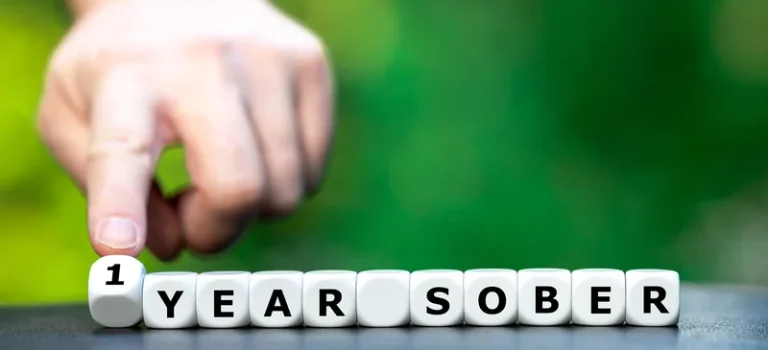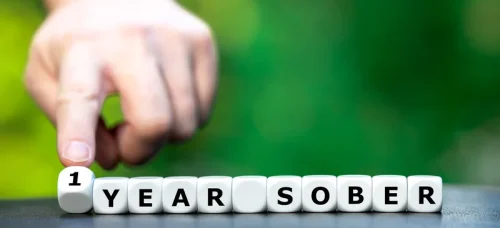
Your doctor may refer you to a counselor or other treatment program to help you learn those skills and coping strategies. If you want to take steps to get treatment for your AUD, make an appointment with your doctor. They’ll likely ask you a series of questions to determine the severity of your dependency. These questions can also help them determine the best treatment option for your needs.
Advice for Friends and Family Members

You may also have regular blood tests so the health of your liver can be carefully monitored. HRK is named as an inventor on PCT patent application #15/878,640 entitled “Genotype-guided dosing of opioid agonists,” filed January 24, 2018. DSH acknowledges support from Campbell Alliance for an unrelated project on the measurement of opioid addiction. One drawback is that you must take two pills three times every day. “If you don’t like taking pills, you already take too many pills, or you aren’t good at remembering to take pills, then this would be a tricky one,” he says.

Impact on your health
- Excess amounts of acetaldehyde have unpleasant effects such as nausea, headache, and sweating.
- These medications are prescribed by a primary care provider or other health care provider and may be used alone or in combination with counseling.
- Some studies suggest that simply getting help — whether through medication, counseling, or both — is what matters for successful management of this addiction.
- Ultimately, sobriety is the responsibility of the person who has the alcohol addiction.
Some people how to treat alcoholism may feel so “broken” that they almost feel they can no longer experience joy and confidence, or have healthy relationships again. While the abstinence stage of withdrawal causes mostly physical symptoms, post-acute withdrawal is very psychological and emotional. During this stage, most people focus their energy on coping with cravings and resisting the urge to drink. The abstinence stage typically begins right after you stop drinking. Get expert guidance on what to ask providers and how to listen for quality in the answers.
Brief interventions.
If you think you may have a drinking problem, you’re definitely not alone. In 2021, researchers estimated nearly 30 million people ages 12 years and older in the United States had alcohol use disorder (AUD). Recovery from alcohol addiction generally follows the stages of abstinence, withdrawal, repair, and growth. If your insurance doesn’t cover all of your therapy costs or if you don’t have insurance, there are other ways to pay. Many therapy providers take federal insurance like Medicaid and Medicare. Some therapists also offer payment plans, scholarships, and sliding-scale fees based on income.

Support groups can be especially helpful when you’re going through treatment for AUD. A support group can help you connect with other people who’re facing similar challenges. They can help answer questions, provide encouragement, and direct you to support resources. People who’re dependent on alcohol may need to learn skills and coping mechanisms to help avoid alcohol once you leave a treatment center or return to familiar environments. Others may want one-on-one therapy for a longer time to deal with issues like anxiety or depression. Alcohol use can have a big effect on the people close to you, so couples or family therapy can help, too.

Can Medicine Help With Alcohol Use Disorder?
Given the diverse biological processes that contribute to AUD, new medications are needed to provide a broader spectrum of treatment options. Currently, there are three medications approved for AUD in the United States, and they are an effective and important aid in the treatment of people with this condition. Ultimately, choosing to get treatment may be more important than the approach used as long as the approach avoids heavy confrontation and incorporates empathy, motivational support, and a focus on changing drinking behavior. 12-step facilitation therapy is an engagement strategy used in counseling sessions to increase an individual’s active involvement in 12-step-based mutual-support groups. Professionally led treatments include behavioral treatments and medications.
- Before you realize it, you can find yourself in a full-blown abusive relationship.
- Talk to your doctor to see of one of those might be right for you.
- However, as they consume more drinks, an individual is likely to become sedated.
Today there are more options available for treating alcohol use disorder (AUD) than ever before. Decades of research have led to advances in medications and behavioral therapies to help people recover. Professionally led alcohol treatment now takes place in a variety of settings, including outpatient care that can help many people recover while still living at home.
How Is CBT Used in Therapy?
And these communities make the person with an alcohol addiction accountable and provide a place to turn to if there is a relapse. For serious alcohol use disorder, you may need a stay at a residential treatment facility. Most residential treatment programs include individual and group therapy, support groups, educational lectures, family involvement, and activity therapy.

If you choose moderation, you’ll probably be asked to attend further counselling sessions so your progress can be assessed, and further treatment and advice can be provided if needed. It might also be worth checking out a 12-step program in your area, like Alcoholics Anonymous or SMART Recovery, to see if it feels like something that might be useful for you. Satisfying hobbies can distract you from wanting to drink, but they also help you relax — something everyone needs to do. If you turn to https://ecosoberhouse.com/article/top-10-substance-abuse-group-activities/ alcohol to manage emotional distress, the added overwhelm can prompt the urge to drink, making success seem even more out of reach. That said, you don’t need to say anything more than “No, thanks.” Practicing your refusal ahead of time can help you feel more comfortable and confident when you find yourself in a situation that involves alcohol. It’s possible to develop a better relationship with alcohol and make more mindful, informed choices about drinking without total sobriety.
